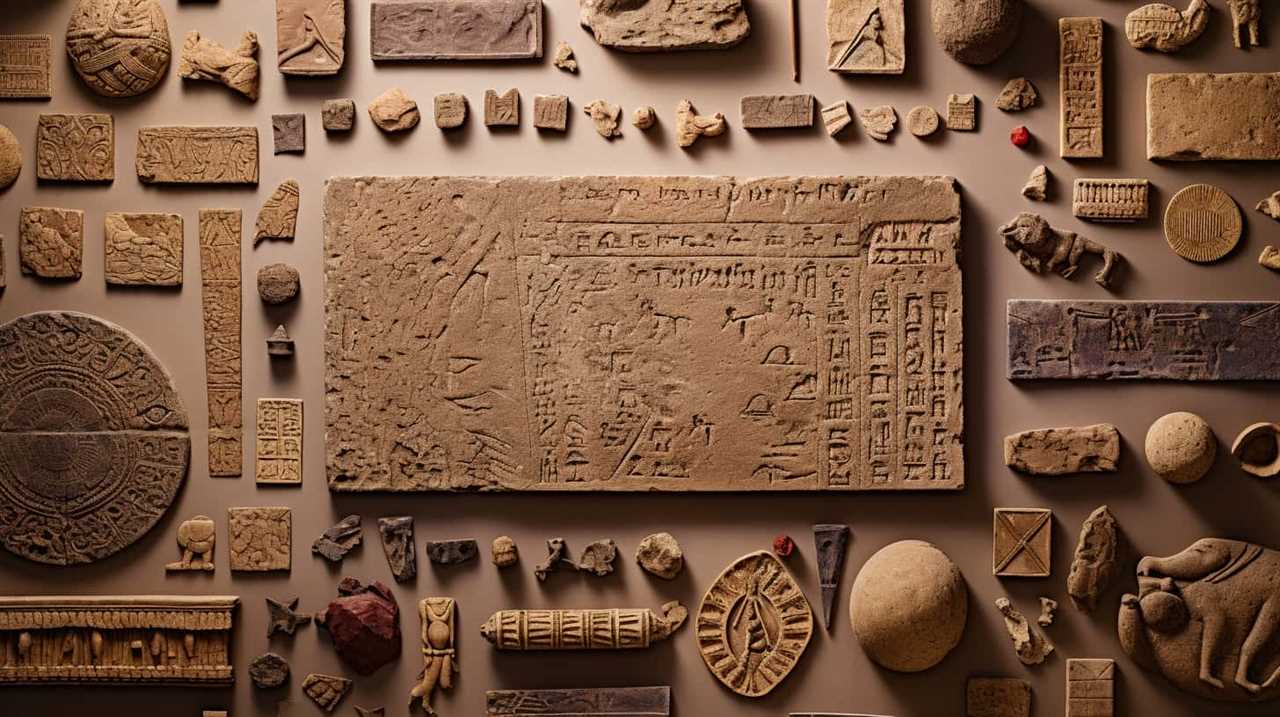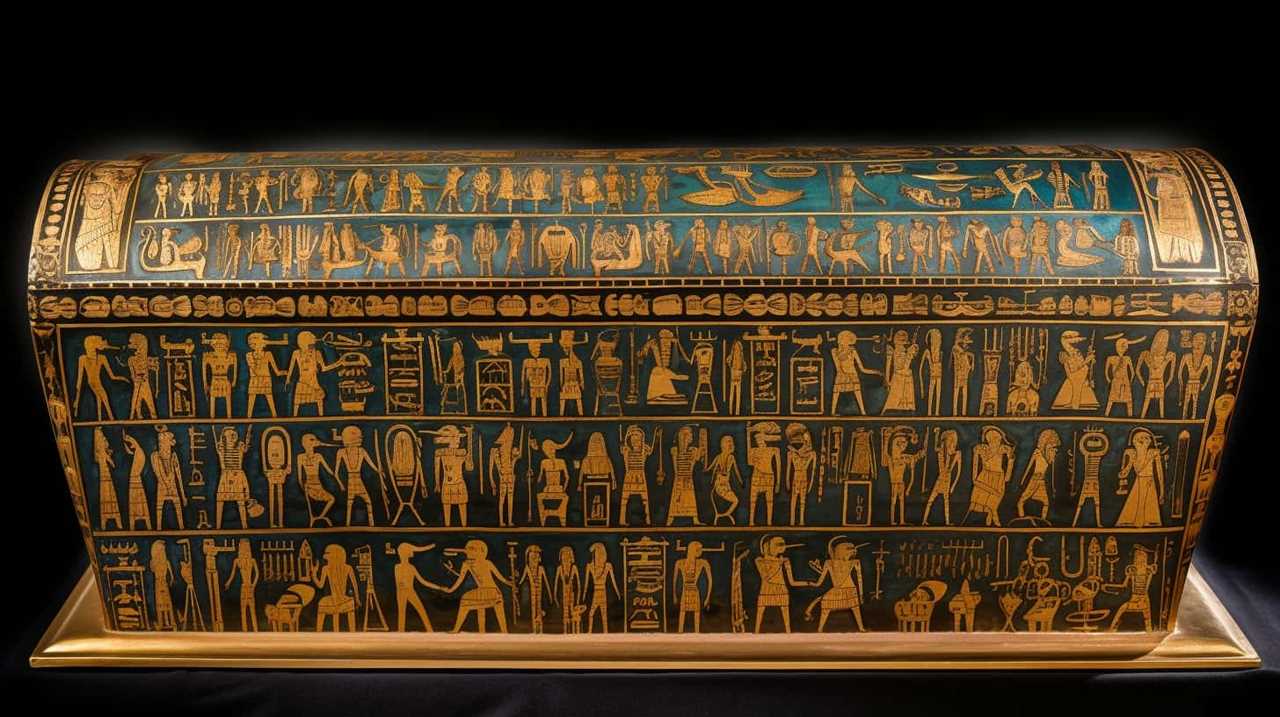In the midst of today’s ethical challenges, we often find ourselves feeling lost and in need of guidance. As we navigate through the turbulent waters of modern life, we contemplate what advice Confucius, the revered philosopher from ancient China, would offer on our moral dilemmas.
In this exploration, we delve into the profound teachings of Confucius and seek to apply them to the complexities of our time. Together, let us embark on a journey of enlightenment, as we unravel the importance of moral education, the value of filial piety, and the cultivation of virtue in our everyday lives. Let us discover the role of rituals and etiquette in shaping our moral compass and find balance between individualism and social harmony.
As we tackle the ethics of leadership, work, economic prosperity, and environmental stewardship, let us ponder how Confucian ethics can guide us through the maze of modern technology. Join us as we seek wisdom from the ancient master, and unlock the timeless insights that Confucius has to offer.
Key Takeaways
- Moral education is essential for equipping individuals with tools and values for morally informed decisions.
- Cultivating virtue, including filial piety, promotes ethical conduct, social responsibility, and fairness.
- Rituals and etiquette play a crucial role in fostering social cohesion, cultural identity, and harmonious relationships.
- Balancing individualism and social harmony requires cultivating virtues and finding a middle ground for personal growth and consideration for others.
The Importance of Moral Education
We believe that prioritizing moral education is crucial in navigating the complex ethical challenges of our modern society. In a world where moral ambiguity and ethical dilemmas are becoming increasingly prevalent, it’s essential to equip individuals with the necessary tools and values to make morally informed decisions.

Moral education plays a fundamental role in shaping our society by instilling virtues and guiding individuals towards ethical behavior. The importance of moral education lies in its ability to cultivate virtues that promote harmonious coexistence and contribute to the betterment of society as a whole. Virtues such as honesty, compassion, and integrity serve as the foundation for moral decision-making and are vital in fostering trust, empathy, and respect among individuals. By imparting these virtues through moral education, we foster a society that values ethical conduct, social responsibility, and fairness.
Moreover, moral education provides individuals with a framework for evaluating and addressing ethical challenges in various contexts. It equips individuals with critical thinking skills, enabling them to analyze complex moral issues, consider multiple perspectives, and make well-reasoned decisions. This ability to think ethically allows individuals to navigate the intricate web of moral quandaries that arise in our modern society.
The Value of Filial Piety
Our understanding of Confucius’s teachings is enriched by recognizing the value of filial piety in shaping our moral compass. Filial piety, or the respect and reverence for one’s parents and ancestors, is a fundamental principle in Confucian philosophy. It not only emphasizes the importance of family obligations but also plays a significant role in shaping our values and behaviors.
The value of respect:

- Filial piety instills in us a deep sense of respect for our parents, elders, and ancestors. It teaches us to honor and care for them, recognizing their wisdom and guidance.
Family obligations:
- Filial piety highlights the importance of fulfilling our duties and responsibilities towards our family. It reminds us of our obligations to support and care for our parents as they age, ensuring their well-being and happiness.
Developing empathy and compassion:
- Filial piety encourages us to cultivate empathy and compassion towards our family members. By understanding their needs and concerns, we can build stronger relationships and contribute to the harmony and stability of our family unit.
Cultivating Virtue in Everyday Life
Continuing the exploration of Confucius’s teachings, let’s delve into the practical application of cultivating virtue in everyday life. Cultivating virtue is a central aspect of Confucian philosophy, emphasizing the importance of personal character development and moral education. In our modern society, where ethical dilemmas and moral quandaries abound, it becomes crucial to understand how we can cultivate virtue in our daily lives.
Confucius believed that virtue could be developed through the practice of rituals, self-reflection, and the pursuit of knowledge. By adhering to social and moral norms, individuals can cultivate qualities such as benevolence, righteousness, and propriety. These virtues not only benefit the individual but also contribute to the harmony and well-being of society as a whole.

In our pursuit of cultivating virtue, moral education plays a significant role. It involves instilling ethical values, fostering empathy, and promoting critical thinking. By teaching individuals to identify and navigate moral dilemmas, moral education equips them with the skills necessary to make virtuous choices in everyday life.
Cultivating virtue in everyday life requires conscious effort and self-awareness. It involves embodying virtuous qualities in our actions, interactions, and decisions. By continuously striving to improve our character, we create a positive impact on ourselves, our relationships, and the world around us.
The Role of Rituals and Etiquette
When considering the role of rituals and etiquette in today’s society, it becomes evident that these practices serve multiple purposes.
Firstly, rituals foster social cohesion by providing a shared framework for interaction and behavior, creating a sense of unity among individuals.

Moreover, etiquette functions as a moral code, guiding individuals in their conduct towards others and ensuring harmonious relationships.
Lastly, rituals play a significant role in shaping cultural identity, as they reflect and reinforce the values, beliefs, and traditions of a community.
Rituals Fostering Social Cohesion
Rituals play a pivotal role in cultivating social cohesion and fostering a sense of unity within our communities. They serve as powerful tools that promote a shared identity and a sense of belonging. Here are three ways in which rituals promote community and social cohesion through traditions:
- Preservation of cultural heritage: Rituals provide a platform for passing down traditions and customs from one generation to another. By engaging in these rituals, community members connect with their cultural roots and strengthen their bond with their heritage.
- Creating a sense of belonging: Rituals often involve collective participation, where individuals come together to perform specific actions or ceremonies. This shared experience fosters a strong sense of belonging and solidarity among community members.
- Establishing social norms: Rituals often involve following a set of rules and etiquette. By adhering to these norms, individuals learn to respect one another and maintain harmonious relationships within the community.
Through these rituals, communities are able to create a cohesive social fabric, reinforcing their shared values and promoting a sense of unity among its members.

Etiquette as Moral Code
As we delve into the role of etiquette as a moral code, it becomes evident that rituals, through their emphasis on social norms and respect for others, serve as a foundation for cultivating virtuous behavior in our communities.
Etiquette, in its essence, is a set of rules and customs that govern social interactions, guiding individuals on how to behave and treat one another. In modern society, where social norms are constantly evolving, etiquette plays a crucial role in fostering harmony and mutual understanding among diverse groups of people.
It provides a framework for individuals to navigate social situations with grace and consideration, promoting empathy and respect. By adhering to etiquette, we demonstrate our commitment to upholding shared values and creating a more compassionate and inclusive society.
As we explore how rituals shape cultural identity, it’s essential to recognize the vital role that etiquette plays in preserving and transmitting our values and traditions.

Rituals Shaping Cultural Identity
Etiquette, as a fundamental aspect of our social fabric, continues to shape our cultural identity through its role in preserving traditions and fostering a sense of mutual respect and understanding.
Cultural traditions are woven into the very fabric of our societies, and rituals serve as the threads that bind us together. They provide a sense of continuity and belonging, reminding us of our shared history and values.
Rituals also play a crucial role in transmitting societal norms from one generation to the next, ensuring that our cultural identity remains intact. They serve as a roadmap for navigating social interactions, establishing guidelines for behavior and communication.
Balancing Individualism and Social Harmony
We, as contemporary individuals, must strike a delicate balance between our personal desires and the well-being of society as a whole. In today’s world, the tension between individualism and collectivism is more pronounced than ever.

On one hand, individualism promotes personal autonomy, self-expression, and the pursuit of one’s own happiness. On the other hand, collectivism emphasizes social harmony, cooperation, and the greater good of the community. Striving for social harmony in a diverse society requires us to navigate the complexities of cultural, religious, and ideological differences.
Confucius would argue that the key to balancing individualism and social harmony lies in cultivating virtues such as benevolence, righteousness, and filial piety. These virtues promote a sense of responsibility towards others and encourage individuals to consider the impact of their actions on the well-being of society. Confucius believed that by cultivating these virtues, individuals would naturally act in ways that promote social harmony and the greater good.
However, achieving this balance isn’t without its challenges. Individualism can lead to self-centeredness and disregard for the needs of others, while excessive collectivism can stifle individuality and personal growth. It’s essential for us to find a middle ground, where we can pursue our own goals and aspirations while also considering the well-being of others.
The Ethics of Leadership and Governance
When it comes to the ethics of leadership and governance, there are several important points to consider.

First, the ethical decision-making process is essential in ensuring that leaders make choices that are morally sound and in the best interest of their constituents.
Second, leadership accountability and transparency are crucial in maintaining trust and upholding ethical standards.
Finally, striking a balance between power and ethics is necessary to prevent abuses of power and promote ethical leadership.
These three points provide a starting point for discussing the complex ethical challenges faced by leaders in today’s society.

Ethical Decision-Making Process
As we navigate the complex landscape of moral quandaries, it’s imperative to explore the ethical decision-making process in leadership and governance, guided by the wisdom of Confucius.
In order to navigate the complexities of ethical reasoning, leaders must first acknowledge the existence of moral dilemmas. This involves recognizing situations where there’s a conflict between competing values or principles, and where the choice between them isn’t clear-cut.
Once these moral dilemmas are identified, leaders can then engage in a process of deliberation and analysis. This includes considering the consequences of different actions, weighing the ethical implications, and seeking input from various stakeholders.
Leadership Accountability and Transparency
Continuing from our exploration of the ethical decision-making process, let’s delve into the realm of leadership accountability and transparency in today’s moral quandaries.

In the face of complex and ever-evolving challenges, it’s crucial for leaders to uphold the principles of transparency and ethical accountability. Leadership transparency refers to the openness and honesty with which leaders communicate and make decisions, while ethical accountability involves taking responsibility for the moral implications of those decisions.
In a world where trust in leaders and institutions is often eroded, leaders must strive to maintain transparency to foster trust and credibility. Ethical accountability ensures that leaders are held responsible for their actions and decisions, promoting integrity and fairness. By prioritizing leadership transparency and ethical accountability, leaders can create a culture of trust, inspire followers, and navigate moral quandaries with wisdom and integrity.
Transitioning to the subsequent section about balancing power and ethics, it’s essential to examine how leaders can effectively navigate the delicate balance between wielding power and upholding ethical principles.
Balancing Power and Ethics
To effectively navigate the delicate balance between wielding power and upholding ethical principles, we must prioritize transparency and ethical accountability as leaders. In today’s complex world, power dynamics and ethical dilemmas often go hand in hand, making it crucial for leaders to find the right equilibrium.

Here are three key considerations:
- Establishing clear ethical guidelines: Leaders must define and communicate ethical standards within their organizations to guide decision-making processes and ensure consistency.
- Promoting open dialogue: Encouraging open discussions about ethical issues allows leaders to understand different perspectives and make informed choices that align with their values and the needs of their stakeholders.
- Holding ourselves accountable: Leaders shouldn’t only hold others accountable for their actions but also take responsibility for their own behavior. This includes acknowledging mistakes, learning from them, and making amends when necessary.
The Ethics of Work and Economic Prosperity
Our society’s pursuit of economic prosperity and the ethics of work are topics that Confucius would undoubtedly have strong opinions on. When it comes to ethics in business, Confucius would emphasize the importance of honesty, integrity, and fair treatment of employees and customers. He’d argue that businesses should prioritize the well-being of their employees and ensure that wealth is distributed fairly among all stakeholders. Confucius would advocate for a system that rewards hard work and merit, rather than one that perpetuates income inequality and exploits workers.
Confucius would also caution against the excessive pursuit of wealth at the expense of moral values. He’d argue that true prosperity comes not only from material wealth but also from cultivating virtuous conduct and fulfilling our social responsibilities. Confucius believed that work should be viewed as a means to contribute to the greater good of society, rather than solely as a means to accumulate wealth.
In transitioning to the next subtopic on the ethics of environmental stewardship, it’s important to note that Confucius would likely emphasize the need for a balanced approach to economic development. He’d advocate for sustainable practices that prioritize the long-term well-being of the environment and future generations. Confucius would urge us to consider the ethical implications of our actions and strive for harmony between economic prosperity and environmental preservation.

The Ethics of Environmental Stewardship
Confucius strongly emphasizes the need for us to prioritize ethical practices in our stewardship of the environment, ensuring that we consistently and actively strive for sustainability. As we navigate the complexities of the modern world, it’s crucial that we recognize our ecological responsibility and take concrete actions to protect and preserve our planet.
Here are three key aspects of sustainable practices and ecological responsibility that Confucius would likely emphasize:
- Conservation of resources: Confucius would advocate for the responsible use of natural resources, encouraging us to adopt practices that minimize waste and promote efficiency. This includes reducing our consumption, reusing and recycling materials, and embracing renewable energy sources.
- Harmony with nature: Confucius would urge us to cultivate a deep appreciation for the natural world and to live in harmony with it. This means respecting the interconnectedness of all living beings, preserving biodiversity, and protecting ecosystems from harm.
- Long-term thinking: Confucius would emphasize the importance of considering the long-term consequences of our actions. He’d encourage us to make decisions that prioritize the well-being of future generations, recognizing that our choices today impact the world they’ll inherit.
Applying Confucian Ethics to Modern Technology
As we explore the ethical implications of modern technology, it becomes evident that the application of Confucian ethics is essential in navigating the moral complexities that arise. The Confucian approach emphasizes the importance of cultivating virtue, maintaining social harmony, and promoting the well-being of individuals and society as a whole. When it comes to modern technology, these principles can guide us in making responsible choices and addressing the ethical implications that arise.
To better understand the application of Confucian ethics to modern technology, let’s consider a three-column table:

| Ethical Implications | Confucian Approach | Examples |
|---|---|---|
| Privacy concerns | Respect for individual autonomy | Implementing strong data protection measures, obtaining informed consent |
| Artificial intelligence | Cultivation of virtue and social harmony | Ensuring AI algorithms are unbiased and promote fairness, addressing potential job displacement |
| Social media and online communication | Promoting well-being and ethical behavior | Encouraging respectful online discourse, combating cyberbullying |
Frequently Asked Questions
How Did Confucius Believe Moral Education Should Be Implemented in Society?
Teachers play a crucial role in implementing moral education in society. They have a social responsibility to impart ethical values and cultivate character in students, just as Confucius believed in his teachings.
What Are Some Examples of Rituals and Etiquette That Confucius Emphasized?
Examples of Confucius’ rituals and etiquette are bowing to show respect, performing ancestor worship, and observing proper conduct in social interactions. Traditional ceremonies held great importance in Confucianism, emphasizing the need for harmony and order in society.
How Did Confucius View the Balance Between Individualism and Social Harmony?
In today’s complex moral landscape, finding the right balance between individualism and social harmony is crucial. We must navigate the delicate tension between individual rights and community cohesion, striving for a harmonious coexistence that respects both.
What Were Confucius’ Thoughts on the Ethics of Leadership and Governance?
Confucius on ethical leadership and governance principles was deeply insightful. He emphasized the importance of virtuous rulers and their moral responsibility to serve the people with integrity, justice, and compassion.

How Did Confucius View the Ethics of Work and Economic Prosperity?
Confucius’ perspective on work ethics emphasized the importance of diligence, integrity, and harmony in one’s profession. Economic prosperity, according to Confucian philosophy, was seen as a means to create stability and cultivate virtuous individuals in society.
How Can Confucian Teachings Apply to Today’s Moral Quandaries?
When faced with modern moral dilemmas, navigating modern ethics with Confucian teachings can provide guidance. The emphasis on benevolence, propriety, and filial piety can help individuals make decisions that align with ethical principles. By incorporating Confucian teachings, individuals can find solutions to today’s complex moral quandaries.
Conclusion
In conclusion, Confucius would undoubtedly have a lot to say about today’s moral quandaries. His emphasis on moral education, filial piety, virtue cultivation, and rituals would provide valuable guidance in navigating the challenges of modern life.
Furthermore, his teachings on balancing individualism and social harmony, ethics of leadership and governance, work and economic prosperity, and environmental stewardship could bring much-needed wisdom to our current dilemmas.
Applying Confucian ethics to modern technology would offer a fresh perspective and help us find a harmonious balance in this rapidly evolving world.

Confucius’ timeless teachings are indeed a treasure trove of insights for today’s moral dilemmas.









